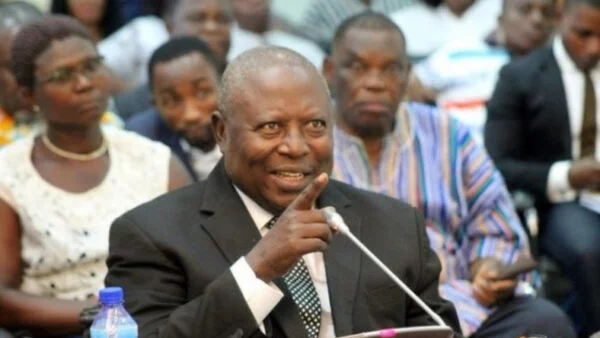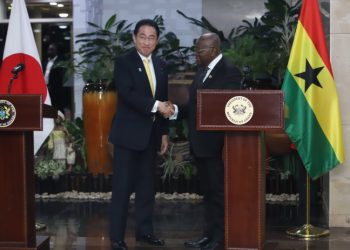According to Mr. Amidu, the distinguished scholar, Naana J. Opoku-Agyemang PhD/FGA, has put her reputation and integrity on the line to the whole world in the foreword for Rawlings.
He quoted her as stating in the foreword that the book is:
“Written in clear, engaging prose, the writer invites the reader to receive the content of the narrative honestly delivered. The vivid, engaging, and deeply reflective eye witness account, couched in unencumbered prose, brings to the fore events narrated with open honesty and transparency.”



Read also: Stonebwoy Needs a Therapist to Help Control His Anger- Micheal Ola
But Mr. Amidu tells readers to
“wait until we get to examining how she could ethically have collaborated with the author and others to doctor an interview on Radio Gold with the President Emeritus, H. E., Flt Lt. J. J. Rawlings, to the public in 1996, which has shamefully been narrated in the book as a hallmark of integrity.”
Punching holes in the book, Mr. Amidu indicated that whilst the foreword is normally not an integral part of the book, no ethical academic will ever write a foreword to a scholarly book without first reading it.
This, he said, is to make an objective assessment of the book’s veracity, explaining that the writer of the foreword knows the invitation to write the foreword was based on the intention to use his or her reputation to entice the public to invest financial and human resources in purchasing and reading it.
Relating to the book under scrutiny, Mr Amidu said: “The writer of the foreword is marketing the book with her credentials of PhD/FGA, and has an ethical obligation to the public for integrity and truth in what she says with her credentials in the foreword.”
However, he asked:
“Did the writer of the foreword play any significant role as an editor, a reviewer, and an institutional colleague of the primary author in his narratives and writing or authoring of the book, such that by the ethics of scholarly and professional writing she or he should not ethically have written the foreword to the book? Did she or he conceal those facts which make for an accountable and transparent ethical foreword writing in her foreword to the book?”
Meanwhile, Mr. Amidu, who is known for speaking his mind on issues of national interest, said the person who brought the uninvited autographed copy of the book to his residence had brought him trouble.
He stressed that the person knew that by his nature, he would not shy away from an “honest challenge, when professional ethics of any profession is at stake. I have taken up the challenge: and time and the pressure of my already onerous work schedule permitting, I intend to deal with the foregoing issues and more in a series of presentations.”
He said he had avoided reading books written by his former colleagues reporting on their observations or experiences in the governments he served with them, lest some contents in the books put temptation in his path to attempt a rejoinder or critique of the book and earn the displeasure of such a colleague.
As such, he did not, therefore, intend to look for, let alone, read, my vandal-mate, Mr. Kwamena Ahwoi’s ‘Working with Rawlings’.
But he said the autographed copy of the book had words left alongside the book that portions of it narrates on the authority of rumours, that the late Mr. Paa Kwasi Amissah-Arthur and he, Amidu, were members of the National Reform Movement.
He added that he was identified and baited by the author and Mr. Kofi Totobi-Quakyi, then the Minister for National Security, with the vice-presidential candidacy in the 2000 election to breach the ranks of the movement.
“I am reported to have excitedly swallowed the bait. The narrative is an irredeemable lie, because I can say and prove authoritatively in due course that neither the late Mr. Amissah-Arthur nor I was an associate or member of the National Reform Movement,” he wrote.
Mr Amidu continued that with hindsight, the uninvited copy of the autographed book was the real bait to get him to read the book, so he may, as usual, be tempted to refute and expose its subjectivity, figments of imagination, delusions, and breaches of all the ethics of acceptable standards of scholarly research, and report writing.



